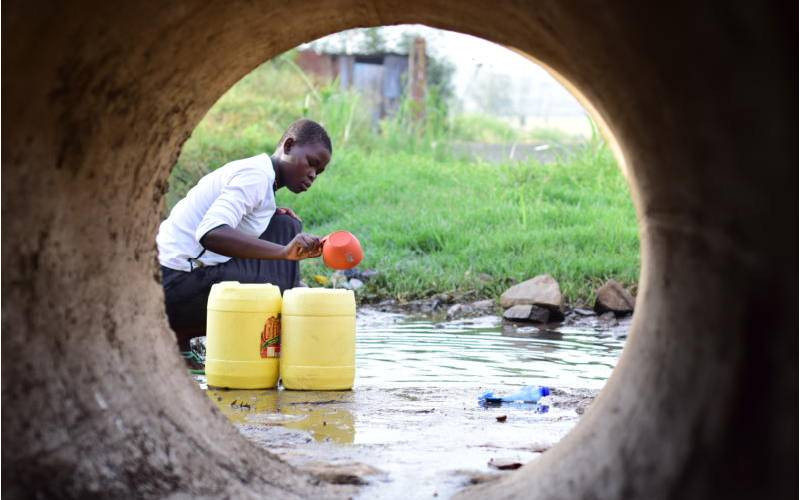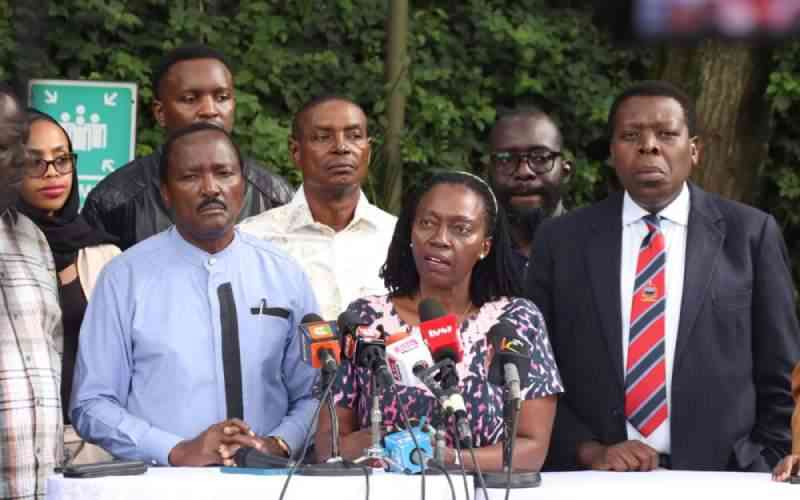By Standard Digital Reporter
Climate Finance as currently constituted supports projects that are not relevant to Africa, the Secretary General of the Pan African Climate Justice Alliance has said.
Speaking at a conference in South Africa, Mithika Mwenda said as things stand, it is difficult to say whether even what has been released as climate finance reaches to deserving people and projects.
Further, he added that only an estimated 19 to 26 per cent of fast-start financing is allocated to programmes and projects in Africa, half of which come in the form of loans.
Fast-start finance supports immediate action by developing countries to strengthen their resilience to climate change and mitigate their greenhouse gas emissions, including those from deforestation.
Since 2002 a plethora of international funds have been established, with contributor countries pledging around US$30 billion at COP15 in Copenhagen for the period 2010-2012 as a fast start programme, and a further US$100 billion annually by 2020 as long term finance.
At the 18th Conference of Parties of the UN Framework Convention on Climate Change held in Doha, Qatar last November, developed countries claimed they over-delivered to the tune of $33 billion although independent analyses by a number of civil society groups show that less than one third of these funds are new and additional.
At least 22 different dedicated international and bilateral climate funds now exist, each with a separate mandate, objectives, conditionalities, institutional mechanisms for access, disbursement and monitoring.
This is in addition to delivery of climate-relevant development assistance via traditional development finance institutions on the international level and through bilateral donor agencies.
Making the most of these resources will require increased capacity globally, and within recipient countries, for coordination, implementation and monitoring. Yet there exists no common standards for assessing what financing count and neither is there any independent tracking system.
Mithika said putting in place effective country-level governance arrangements to properly manage these resources will be critical.
In Africa weak governance, characterised by deficits in transparency, accountability, and integrity, coupled with low institutional independence can and, in some instances already does, lead to corruption and misdirection of public resources away from poverty-reduction, development and climate protection goals.
According to Noah Zimba, Zambia Climate Change Network, limited or absence of clarity and delineation between climate funds often leaves governments confused on whether the funds are to support adaptation actions or mitigation investments.
This, he adds results in co-mingling. He said the non-disclosure practice associated with many financial instruments make it very difficult to guarantee transparency and accountability, particularly by the civil societies.
Governance of climate finance on the continent will therefore require that civil society begin to play their role in ensuring that those funds which have reached national coffers are directed to the most vulnerable, in local communities.
Stay informed. Subscribe to our newsletter
This also includes funds from national environment and green funds that have increasingly been set up across the continent in recent years.
Africa has historically contributed the least to the problem of climate change yet it faces some of its most severe impacts.
There is broad consensus about both the urgency and the need to ensure that the supply of climate finance is adequate, predictable and sustainable if it is to meet demand and the needs of developing countries.
At the same time, there are increasing calls on recipient countries to ensure that, once received, climate funds will be used effectively and efficiently in order to achieve the imperative for transformation in the developing world.
It is in this vein that the African civil society has taken the role of monitoring government spending of climate finance, creating public demand for transparency and accountability, and enhancing its participation in the overall governance of climate finance at a national level.
Civil societies however will need to play an active role in influencing effective policy development, exert their watchdog role and demand mandated oversight bodies to play their role in monitoring the implementation of climate finance from public accounts.
This role will become even more critical in the crucial period ahead when new international funding instruments come on stream and more countries gain access to such funds.
The workshop has been organized by the Heinrich Böll Foundation, the Pan African Climate Justice Alliance and Transparency International Kenya.
It seeks to provide a platform for civil society actors and other stakeholders in the region to share experiences, strategies and tools, as well as build their capacity towards playing a more active role in the governance of climate finance on the continent.
 The Standard Group Plc is a
multi-media organization with investments in media platforms spanning newspaper
print operations, television, radio broadcasting, digital and online services. The
Standard Group is recognized as a leading multi-media house in Kenya with a key
influence in matters of national and international interest.
The Standard Group Plc is a
multi-media organization with investments in media platforms spanning newspaper
print operations, television, radio broadcasting, digital and online services. The
Standard Group is recognized as a leading multi-media house in Kenya with a key
influence in matters of national and international interest.
 The Standard Group Plc is a
multi-media organization with investments in media platforms spanning newspaper
print operations, television, radio broadcasting, digital and online services. The
Standard Group is recognized as a leading multi-media house in Kenya with a key
influence in matters of national and international interest.
The Standard Group Plc is a
multi-media organization with investments in media platforms spanning newspaper
print operations, television, radio broadcasting, digital and online services. The
Standard Group is recognized as a leading multi-media house in Kenya with a key
influence in matters of national and international interest.






